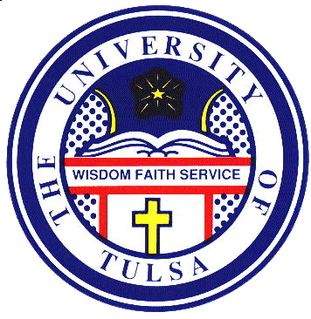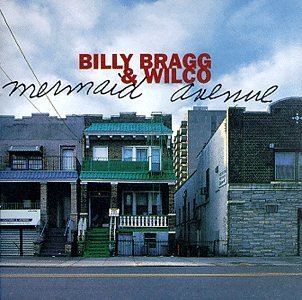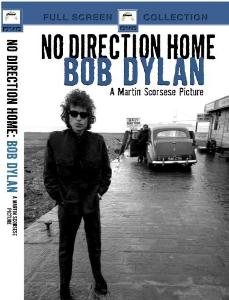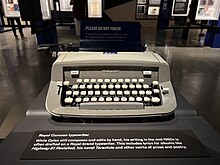
The University of Tulsa (TU) is a private research university in Tulsa, Oklahoma. It has a historic affiliation with the Presbyterian Church, although it is now nondenominational, and the campus architectural style is predominantly Collegiate Gothic. The school traces its origin to the Presbyterian School for Indian Girls, which was established in 1882 in Muskogee, Oklahoma, then a town in Indian Territory, and which evolved into an institution of higher education named Henry Kendall College by 1894. The college moved to Tulsa, another town in the Creek Nation in 1904, before the state of Oklahoma was created. In 1920, Kendall College was renamed the University of Tulsa.

Woodrow Wilson Guthrie was an American singer-songwriter and composer who was one of the most significant figures in American folk music. His work focused on themes of American socialism and anti-fascism. He inspired several generations both politically and musically with songs such as "This Land Is Your Land".

Tulsa is the second-most-populous city in the state of Oklahoma, after Oklahoma City, and the 48th-most-populous city in the United States. The population was 413,066 as of the 2020 census. It is the principal municipality of the Tulsa metropolitan area, a region with 1,034,123 residents. The city serves as the county seat of Tulsa County, the most densely populated county in Oklahoma, with urban development extending into Osage, Rogers and Wagoner counties.

"Blowin' in the Wind" is a song written by Bob Dylan in 1962. It was released as a single and included on his album The Freewheelin' Bob Dylan in 1963. It has been described as a protest song and poses a series of rhetorical questions about peace, war, and freedom. The refrain "The answer, my friend, is blowin' in the wind" has been described as "impenetrably ambiguous: either the answer is so obvious it is right in your face, or the answer is as intangible as the wind".
George Bruce Kaiser is an American billionaire businessman. He is the chairman of BOK Financial Corporation in Tulsa, Oklahoma. As of September 2021, he is the 476th richest person in the world and was, in 2012, one of the top 50 American philanthropists.

Ramblin' Jack Elliott is an American folk singer, songwriter and story teller.

Mermaid Avenue is a 1998 album of previously unheard lyrics written by American folk singer Woody Guthrie, put to music written and performed by British singer Billy Bragg and the American band Wilco. The project was the first of several such projects organized by Guthrie's daughter, Nora Guthrie, original director of the Woody Guthrie Foundation and archives. Mermaid Avenue was released on the Elektra Records label on June 23, 1998. A second volume of recordings, Mermaid Avenue Vol. II, followed in 2000 and both were collected in a box set alongside volume three in 2012 as Mermaid Avenue: The Complete Sessions. The projects are named after the song "Mermaid's Avenue", written by Guthrie. This was also the name of the street in Coney Island, New York, on which Guthrie lived. According to American Songwriter Magazine, "The Mermaid Avenue project is essential for showing that Woody Guthrie could illuminate what was going on inside of him as well as he could detail the plight of his fellow man". It was voted number 939 in Colin Larkin's All Time Top 1000 Albums 3rd Edition (2000).

Philbrook Museum of Art is an art museum with expansive formal gardens located in Tulsa, Oklahoma. The museum, which opened in 1939, is located in a former 1920s villa, "Villa Philbrook", the home of Oklahoma oil pioneer Waite Phillips and his wife Genevieve. Showcasing nine collections of art from all over the world, and spanning various artistic media and styles, the cornerstone collection focuses on Native American art featuring basketry, pottery, paintings and jewelry.

No Direction Home: Bob Dylan is a 2005 documentary film by Martin Scorsese that traces the life of Bob Dylan, and his impact on 20th-century American popular music and culture. The film focuses on the period between Dylan's arrival in New York in January 1961 and his "retirement" from touring following his motorcycle accident in July 1966. This period encapsulates Dylan's rise to fame as a folk singer and songwriter where he became the center of a cultural and musical upheaval, and continues through the electric controversy surrounding his move to a rock style of music.

Bob Dylan is an American singer-songwriter. Considered one of the greatest songwriters of all time, Dylan has been a major figure in popular culture over his 60-year career. With an estimated figure of more than 125 million records sold worldwide, he is one of the best-selling musicians of all-time. Dylan added increasingly sophisticated lyrical techniques to the folk music of the early 1960s, infusing it "with the intellectualism of classic literature and poetry". His lyrics incorporated political, social and philosophical influences, defying pop music conventions and appealing to the burgeoning counterculture.

I'm Not There is a 2007 musical drama film directed by Todd Haynes, who co-wrote the screenplay with Oren Moverman, based on a story by Haynes. An experimental biographical film, it is inspired by the life and music of American singer-songwriter Bob Dylan, with six actors depicting different facets of Dylan's public personas: Christian Bale, Cate Blanchett, Marcus Carl Franklin, Richard Gere, Heath Ledger, and Ben Whishaw. A caption at the start of the film declares it to be "inspired by the music and the many lives of Bob Dylan"; this is the only mention of Dylan in the film apart from song credits, and his only appearance in it is concert footage from 1966 shown during the film's final moments.

The Woody Guthrie Folk Festival is held annually in mid-July to commemorate the life and music of Woody Guthrie. The festival is held on the weekend closest to July 14 – the date of Guthrie's birth – in Guthrie's hometown of Okemah, Oklahoma. Daytime main stage performances are held indoors at the Brick Street Cafe and the Crystal Theatre. Evening main stage performances are held outdoors at the Pastures of Plenty. The festival is planned and implemented annually by the Woody Guthrie Coalition, a non-profit corporation, whose goal is simply to ensure Guthrie's musical legacy. The event is made possible in part from a grant from the Oklahoma Arts Council. Mary Jo Guthrie Edgmon, Woody Guthrie's younger sister, is the festival's perennial guest of honor.
The Woody Guthrie Foundation, founded in 1972, is a non-profit organization which formerly served as administrator and caretaker of the Woody Guthrie Archives. The Foundation was originally based in Brooklyn, New York and directed by Woody Guthrie's daughter Nora Guthrie.

Nora Lee Guthrie is the daughter of American folk musician and singer-songwriter Woody Guthrie and his second wife Marjorie Mazia Guthrie, sister of singer-songwriter Arlo Guthrie, and granddaughter of renowned Yiddish poet Aliza Greenblatt. Nora Guthrie is president of The Woody Guthrie Foundation, president of Woody Guthrie Publications and founder of the Woody Guthrie Archive, and lives in Mt. Kisco, New York.

Robert Wayne Childers was an American country-folk musician and singer-songwriter from the state of Oklahoma. Both before and after his death, he achieved widespread critical acclaim having been compared to songwriters such as Bob Dylan and Woody Guthrie. Childers is often labeled the "father", "grandfather", or "godfather" of the regional Oklahoman music scene known as Red Dirt music.

The Oklahoma Jazz Hall of Fame, located in Tulsa, Oklahoma, is a non-profit organization that honors jazz, blues and gospel musicians in the state of Oklahoma. Housed in the former Tulsa Union Depot, which it now calls the Jazz Depot, the Hall of Fame is a music venue that hosts regular jazz performances. It is also a museum, displaying photographs, biographical information, artifacts, and memorabilia from musicians such as Chet Baker, Earl Bostic, Don Cherry, Charlie Christian, Tommy Crook, Pat Kelley, Barney Kessel and Jimmy Rushing.
"Last Thoughts on Woody Guthrie" is a poem by American singer-songwriter Bob Dylan, written in honor of his idol Woody Guthrie, who at the time was dying from Huntington's disease. It was recited live during his April 12, 1963 performance at New York City's Town Hall and was officially released in 1991 on The Bootleg Series Volumes 1-3 1961-1991 after circulating on bootleg releases for years.

The Woody Guthrie Center is a public museum and archive located in Tulsa, Oklahoma that is dedicated to the life and legacy of American folk musician and singer-songwriter Woody Guthrie. The Center also contains the archives of folk singer, songwriter, and fellow social activist Phil Ochs.
The Bob Dylan Archive is a rare collection of documents and objects relating to notable American singer-songwriter Bob Dylan, stored in a 29,000 square feet facility in Oklahoma. The archive consists of two floors full of galleries showcasing a majority of Bob Dylan items that have never been seen by the public eye.


















